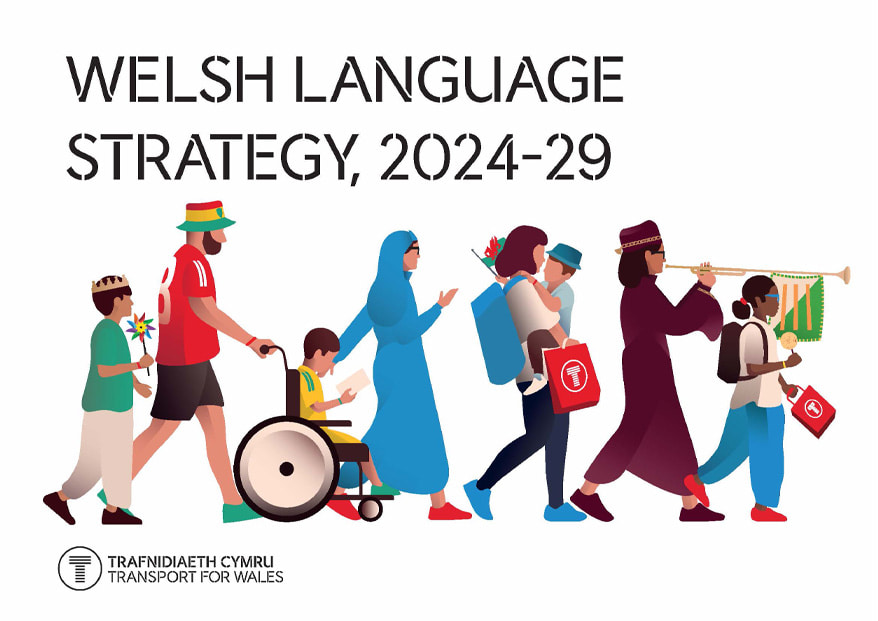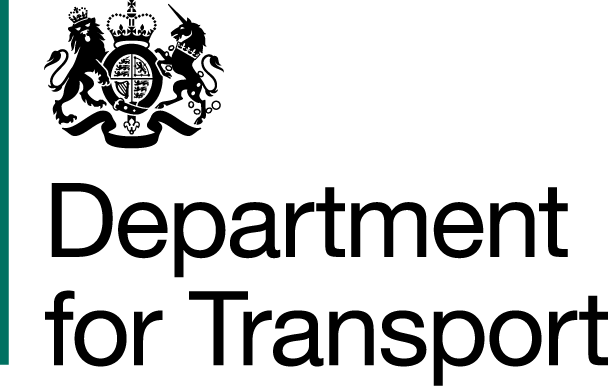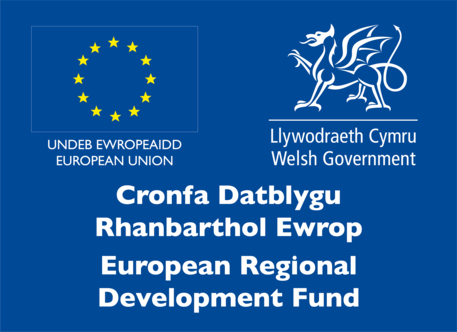
As the main operator of the railway in Wales, the Welsh language is really important to us.
Transport for Wales’ mission is around driving forward the Welsh Government’s vision of a high-quality, safe, integrated, affordable and accessible transport network that the people of Wales are proud of.
Our work focuses on improving connectivity by planning, commissioning and managing efficient transport networks and by drawing on the best skills from across industry, government and society. Together, we’re creating a transport network fit for the future, one that contributes to the long-term sustainability of Wales and of those communities connected to us, to help achieve the seven well-being goals of the Well-being of Future Generations (Wales) Act 2015.
We view the Welsh language as an integral part of this vision
-
We are proud to be a bilingual operator and organisation in Wales and its borders.
-
We embrace the Welsh language as a language of choice for many and as part of our everyday culture.
-
We welcome feedback on our services and will be pleased to discuss suggestions on how we might enhance our offering to the customer.
What’s happening?
-
Enabling the Workforce - we will provide opportunity and support for all colleagues with their Welsh language ambitions, increase the use of Welsh within our organisation and create favourable conditions for bilingualism.
-
Improving customer experience Our objective is to improve our language offering within customer experience. Customer experience is a fundamental element of TfW’s service and achieving the highest possible linguistic quality is integral to our success. Our customer experience offering will be authentic and engaging.
-
Increasing bilingual infrastructure Ensuring a fully bilingual infrastructure, such as visual and audio announcements, customer facing systems, bilingual wayfinding and signage.
-
Increasing bilingual communication Ensuring fully bilingual non-employee-based communication, such as written material and electronic communication, is in line with the Welsh Language Standards.
-
Increase in verbal employee-based communication, such as station announcements and ticket office services, utilising incidental Welsh.
-
Increasing awareness of TfW’s Welsh language customer services.
-
Increase in Welsh language being selected as a language preference on communication tools, such as mailing subscriptions, language toggling.
-
To promote the concept of the ‘proactive offer’ rather than a reactive approach to Welsh language services - we will constantly seek to improve our standards of service delivery and approach legislative compliance as the minimum baseline from which we can improve.
-
Building stronger relationships - Our ambition is to strengthen our relationships and networks in Wales and beyond. We want to be able to nurture our relationships to have a long-lasting positive influence within our communities.
-
Leading the community by example - Key involvement in the development of future (sector-specific) Welsh Language Standards.
-
Stimulating community engagement - Increasing active touch points with Welsh language communities, groups and organisations.
-
Agreed investment into our Welsh language communities, such as sponsoring culturally significant events, using these as opportunities to engage with Welsh-speaking attendees, recruitment and to promote success.
-
Ensuring that consultation platforms and opportunities to give feedback/views are enabled in Welsh and ensuring our ability to process accurately.
-
Welsh Heritage - To promote the use of the Welsh language, culture and its historical context through inspection activity.
Welsh Language Strategy
At Transport for Wales, we’re Welsh first and foremost. We want it to be an central part of people’s travel experience. Whether it’s the daily commute, a day trip to the beach or travelling to see Wales play rugby (or football). TfW is intrinsically Welsh - and proudly so.
This strategy outlines what our priorities are and what the outcomes will be achieved over the next five years. It will ensure we provide assurances on what progress is being made, through both case studies and performance indicators, throughout the journey.
Mae’r Gymraeg yn perthyn i ni i gyd.




